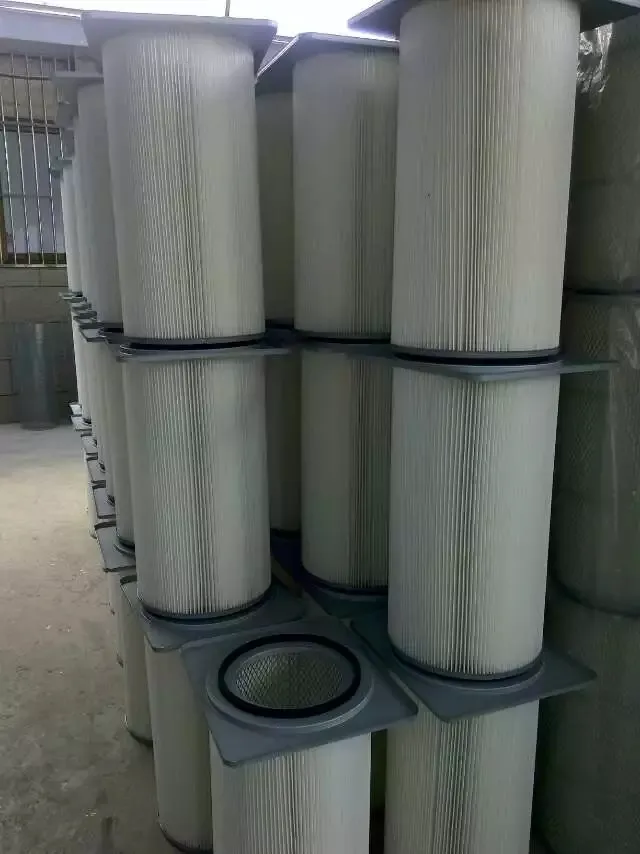 Tel:
+8618931101301
Tel:
+8618931101301
12 月 . 05, 2024 19:32 Back to list
Choosing the Best Air Filters for Heavy Equipment Performance and Longevity
The Importance of Air Filters in Heavy Equipment
Heavy equipment plays a critical role in a variety of industries, such as construction, mining, and agriculture. These machines, including bulldozers, excavators, and tractors, are designed to operate in harsh environments where dust, dirt, and other contaminants are prevalent. Consequently, maintaining the efficiency and longevity of heavy equipment is paramount, and one of the most crucial components in this maintenance is the air filter.
Understanding Air Filters
An air filter is a device that removes impurities from the air entering the engine of heavy machinery. It serves as the first line of defense against contaminants that can cause severe engine damage and capital expenditure due to repairs and downtime. The primary function of air filters is to ensure that clean air reaches the engine, allowing for optimal combustion and performance.
Types of Air Filters
There are various types of air filters used in heavy equipment, each designed for specific applications and conditions. The most common types include
1. Paper Filters These are made of cellulose, synthetic fibers, or a combination of both. They are typically inexpensive and effective for standard operating conditions but may not perform well in extreme environments.
2. Foam Filters Often used in off-road applications, foam filters provide excellent filtration for dirt and are especially useful in environments with high humidity. They can be washed and reused, making them a cost-effective option.
3. Oil Bath Filters This type utilizes oil to capture dust and particles, making it highly effective for heavy-duty applications. However, they require more maintenance and are generally heavier.
heavy equipment air filter

4. Synthetic Filters These filters offer superior filtration efficiency and longer service life. They are designed to handle extreme conditions and can withstand high temperatures, making them popular in many heavy machinery applications.
The Role of Air Filters in Equipment Efficiency
An effective air filter significantly contributes to the overall efficiency of heavy equipment. A clean air filter improves the engine's airflow, enhancing combustion and fuel efficiency. This leads to better engine performance, reduced emissions, and, ultimately, lower operating costs. Conversely, a clogged air filter restricts airflow, resulting in decreased power and increased fuel consumption. In severe cases, it can even lead to engine failure, causing costly repairs and lengthy downtime.
Regular Maintenance and Replacement
Regular maintenance of air filters is essential to ensure that heavy equipment operates at peak performance. It is generally recommended to inspect and replace air filters based on the operating environment and the manufacturer’s guidelines. In dusty or sandy conditions, filters may require more frequent cleaning or replacement. Failing to maintain air filters can lead to decreased performance, increased wear, and higher maintenance costs over time.
Innovations in Air Filtration Technology
As technology advances, the air filtration industry is also evolving. New materials and designs are being developed to enhance the efficiency and effectiveness of air filters. Innovations such as electrostatic filters, which attract and capture more particles, are becoming increasingly popular. Additionally, smart sensors are being integrated into some heavy equipment, allowing for real-time monitoring of air filter performance and prompt alerts for maintenance needs.
Conclusion
In summary, air filters are an essential component of heavy equipment maintenance. They play a crucial role in ensuring the efficient operation of machines that are vital to various industries. Regular inspection, maintenance, and timely replacement of air filters can lead to improved performance, reduced operating costs, and extended equipment lifespan. As technology continues to advance, the future of air filtration in heavy equipment looks promising, offering even greater efficiency and reliability for operators in the field. Investing in quality air filters and adhering to a solid maintenance schedule can ultimately safeguard your equipment and enhance productivity in your operations.
-
How to choose a high-efficiency air filter? Here comes a professional guideNewsOct.21,2024
-
Air filter: multi-field application, protecting fresh airNewsOct.17,2024
-
Carbon air filter: a green guard to protect air qualityNewsOct.16,2024
-
Can activated carbon completely remove indoor odors and pollutants in air purification?NewsOct.14,2024
-
How to filter air efficiently and ensure indoor air quality?NewsOct.12,2024
-
Activated carbon filter: the invisible guard of clean water lifeNewsOct.11,2024

 Email:
Email:





